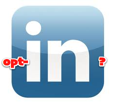 Since the interview of Edward Snowden with the Guardian, the discussion about privacy and companies storing and sharing unencrypted private data is picking up. Particularly Americans are worried about what it does for their National security and their private data. But that’s actually a naive thought, given the NSA stores worldwide data.
Since the interview of Edward Snowden with the Guardian, the discussion about privacy and companies storing and sharing unencrypted private data is picking up. Particularly Americans are worried about what it does for their National security and their private data. But that’s actually a naive thought, given the NSA stores worldwide data.
In a recent coverage on theblaze.com (a rather tabloid-looking news station in the U.S.), the interviewers are shocked to see that the NSA spies on “every American”.
This is a limited view of the world and failing to see the importance of spying on people outside the U.S., but lets start with technical side of things first. What data are they storing and how big is their hard-disk?

